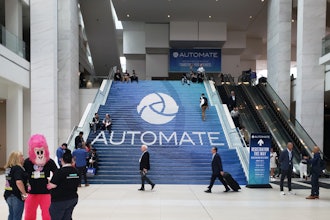
CEOs have been waking up to uncertainty every day for a while now. According to PwC’s annual CEO survey, 75% of CEOs believe that the global economy will face declining growth in 2023. Economic uncertainty is at the forefront of their minds.
What does this uncertainty consist of? One of manufacturing leaders’ biggest concerns right now is understanding the true lead times of suppliers. Foreknowledge of supply times is essential for enabling production. Maximizing capacity utilization and minimizing nonvalue add capacity utilization are also vital to make sure demand is met and that manufacturing companies can mitigate the loss of financial margins.
However, beyond these negative impacts of economic and supply uncertainty, there is a point when uncertainty becomes more ... certain. In fact, the same PwC survey found that 40% of global CEOs believe that their organizations won’t sustain the storm and won’t be economically viable in 10 years if they continue going down their current path.
Why Is Uncertainty So Dooming for Manufacturing Right Now?
Why are these concerns so significant that they caused 40% of CEOs to believe their businesses won’t be relevant in a decade?
The notion of who is relevant is shifting quickly; competitors with stronger and more responsive supply chain capabilities will deliver faster and cheaper service, ultimately pushing other manufacturing businesses out of the running. “Relevant” means being able to adapt to developing crises in real time to keep serving customers and their needs.
Many manufacturing companies are also hyper-reliant on particular sources and suppliers, meaning that if that section of the economy falls, they’re left without supply. On top of that, many supplier agreements were drawn up in easier times and are only now showing vulnerabilities.
Because of this, staying relevant by diversifying and reinventing business models will be critically important for manufacturing organizations’ survival. More businesses will have to be nimble to offer products that can shift between industries and keep operations running.
How Can Manufacturing CEOs Work to Stay Relevant in the Future?
What can you do as a leader to ensure your company has a chance at staying relevant? Can you develop scenarios where your business can operate profitably or with little outside financial support based on the right group of customers and product offerings? Can you partner with larger database companies that have staying power and offer your services through integrations? There are many strategies you can try to carve out a more sustainable future amid uncertainty. Start with these steps:
1. Observe your real capacity data.
In order to truly understand and gain some control over supply chains, manufacturing CEOs must work to access and observe their real capacity data. Observe how shifts in supply and demand impact where inventory sits and think deeply about how supply and demand factors impact capacity to fulfill. Transparency and accessibility of supply chain data will help you form accurate predictions and plan accordingly so you can sense demand changes and respond to different market situations.
2. Plot a multi-industry course.
To rest all avenues of success on a single industry’s suppliers seems short-sighted. How can you create or diversify existing products to sell across multiple industries? According to research by McKinsey & Company, companies that grow into adjacent industries open up an additional 1.5 percentage points per year above their peers for shareholder returns. Energy companies shifting to chemicals, recycling, and construction materials are taking advantage of this strategy right now. Start thinking about how you can create new offerings that sell across multiple industries to gain an edge over competitors during supply chain woes.
3. Stay top of mind with thought leadership.
Maintaining sustainable supply chains is just one way to stay in customers’ lives; another is to generate thought leadership and share insights that help people in the same kind of ways that your products do. Look into sharing infographics, whitepapers, or thought pieces that offer people tangible, actionable content. You could even write about your own supply chain struggles to show that you are a transparent, trustworthy source. It works!
Every manufacturer has a capacity-to-fulfill problem today — there is no uncertainty about that. The feeling of confusion and indecision comes from not knowing how to move forward despite this problem. Manufacturing leaders need to land on solutions that provide rapid responses to adjust to disruptions in supply and demand or create additional and alternative means of staying profitable and relevant. There are profitable scenarios available for any business if you are willing to leverage your existing data to identify them.
Ali Hasan R. is the co-founder and CEO of ThroughPut Inc., the artificial intelligence supply chain pioneer that enables companies to detect, prioritize, and alleviate dynamic operational bottlenecks.






















